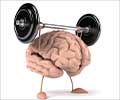Can brain exercises really improve cognition? Discover the science behind brain games and six exercises to boost your mental fitness!
- Engaging in mentally challenging activities can help maintain cognitive function and improve memory over time
- Social interaction during brain exercises can provide additional cognitive benefits and combat feelings of isolation
- Variety in brain exercises is key; try crossword puzzles, online brain games, tactile hobbies, card games, or even learning new dance moves for optimal cognitive stimulation
Ten-year effects of the advanced cognitive training for independent and vital elderly cognitive training trial on cognition and everyday functioning in older adults
Go to source).
Understanding Brain Exercises and Their Benefits
Brain exercises encompass any activity that challenges your cognitive abilities. While online brain games offer a diverse array of imaginative challenges, traditional games like bingo and hobbies like model building also stimulate crucial memory skills. The key is to find sufficiently challenging activities without causing undue stress.Why Brain Games Matter for Aging Adults?
While brain exercises may not prevent Alzheimer’s or dementia, they offer significant cognitive benefits and can enhance overall quality of life. These exercises stimulate various cognitive functions, such as executive function and processing speed, while also providing socialization opportunities, which are crucial for the mental well-being of older adults.Did You Know?
Playing card games not only sharpens your mind but also enhances your social connections, making it a win-win for cognitive health and social well-being!
Social Component of Brain Exercises
Engaging in stimulating games with others provides not only cognitive benefits but also social interaction, which is essential for maintaining overall health in older adults. Socializing itself involves complex cognitive processes, including memory, attention, and language skills, making it a holistic brain exercise.Empowerment Through Brain Exercises
Brain exercises can help older adults regain a sense of control over their cognitive health, especially in the face of retirement or illness. By challenging their minds and learning new skills, individuals can foster a positive outlook and improve mood and overall well-being.Fostering New Neural Connections
Challenging the mind with novel activities encourages the development of new neural connections, enhancing cognitive flexibility and resilience. However, it’s essential to choose activities that genuinely interest and engage you to ensure sustainable cognitive benefits.Top Brain Exercises to Try at Home
Crossword Puzzles:
Challenge your verbal memory and delay memory decline by tackling crossword puzzles of varying difficulty levels (2✔ ✔Trusted Source
Association of crossword puzzle participation with memory decline in persons who develop dementia
Go to source).Online Brain Games:
Explore platforms like Lumosity and BrainHQ for daily challenges that target memory, attention, and problem-solving skills.Jigsaw Puzzles:
Engage your visual-spatial working memory with jigsaw puzzles, which offer a comprehensive cognitive workout (3✔ ✔Trusted Source
Jigsaw Puzzling Taps Multiple Cognitive Abilities and Is a Potential Protective Factor for Cognitive Aging
Go to source).Model Building or Knitting:
Develop procedural memory through tactile hobbies like model building or knitting, yielding tangible results.Card Games:
Enjoy cognitive-enhancing games like bridge, mahjong, or chess, which require strategic thinking and memory skills.Dancing:
Learn new dance moves to challenge your auditory, visual, and motor skills while improving cardiovascular health.
Incorporating Brain-Boosting Supplements
For an added cognitive boost, consider personalized nootropic blends, designed to activate various cognitive functions and enhance productivity.By embracing brain exercises and fostering cognitive wellness, individuals can enjoy improved mental acuity, enhanced social connections, and a greater sense of empowerment as they age.
- Ten-year effects of the advanced cognitive training for independent and vital elderly cognitive training trial on cognition and everyday functioning in older adults - (https://pubmed.ncbi.nlm.nih.gov/24417410/)
- Association of crossword puzzle participation with memory decline in persons who develop dementia - (https://pubmed.ncbi.nlm.nih.gov/22040899/)
- Jigsaw Puzzling Taps Multiple Cognitive Abilities and Is a Potential Protective Factor for Cognitive Aging - (https://pubmed.ncbi.nlm.nih.gov/30327598/)
Source-Medindia
















